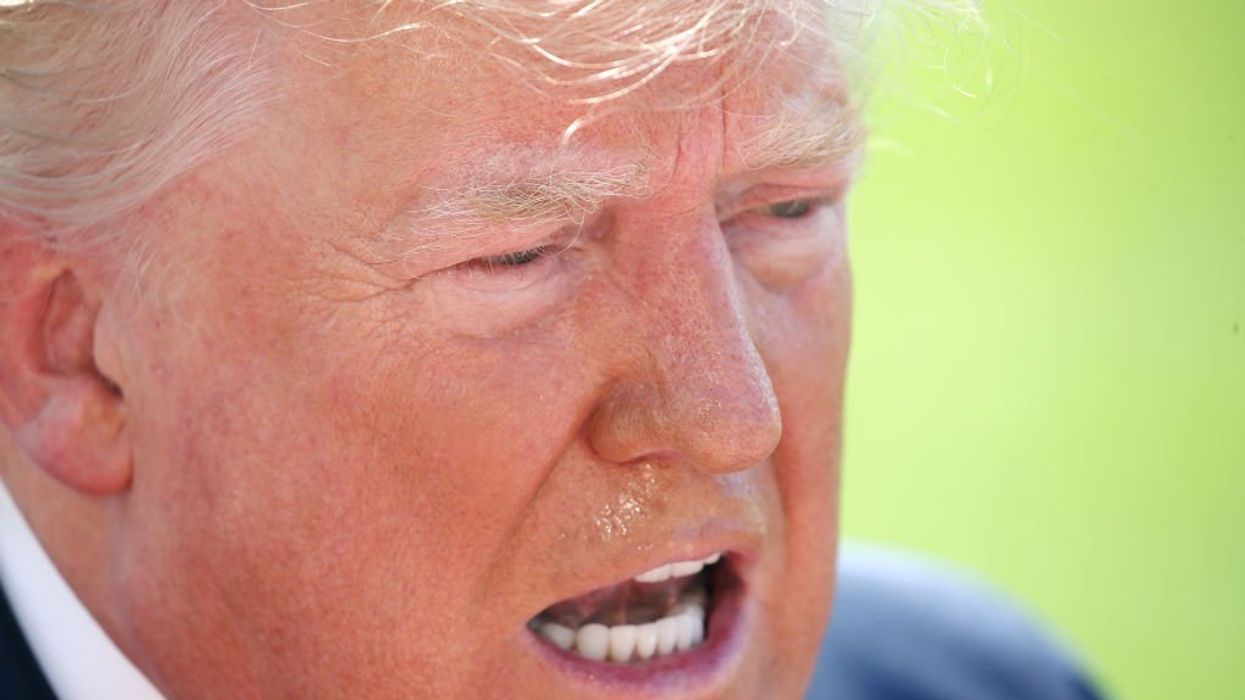Despite repeated calls from the public and some political figures for the complete release of files related to Jeffrey Epstein, including those containing a rumored "client list," the Donald Trump administration refuses to release all such documents fully.
Trump Defends Administration Amid Epstein Files Controversy, Blames Predecessors
Trump addressed internal tensions within his administration regarding the Epstein files in a lengthy rant on Truth Social Saturday, defending Attorney General Pam Bondi and urging his supporters to focus on the MAGA agenda.
Here are some excerpts:
What’s going on with my ‘boys’ and, in some cases, ‘gals?’ They’re all going after Attorney General Pam Bondi, who is doing a FANTASTIC JOB! We’re on one Team, MAGA, and I don’t like what’s happening.
For years, it’s Epstein, over and over again. Why are we giving publicity to Files written by Obama, Crooked Hillary, Comey, Brennan, and the Losers and Criminals of the Biden Administration?
LET PAM BONDI DO HER JOB — SHE’S GREAT! The 2020 Election was Rigged and Stolen, and they tried to do the same thing in 2024 — That’s what she is looking into as AG, and much more.
One year ago our Country was DEAD, now it’s the ‘HOTTEST’ Country anywhere in the World. Let’s keep it that way, and not waste Time and Energy on Jeffrey Epstein, somebody that nobody cares about.
But, despite Trump's attempts to downplay the Epstein case and shift blame to previous administrations, and questioning why the Epstein files had not been released earlier if they contained damaging information, renewed scrutiny and speculations surround the undisclosed documents.
Internal Tensions Rise in Trump Administration Over Epstein Case
The dispute within the Trump administration follows the Justice Department and FBI’s announcement last week that they found no evidence supporting claims that Epstein possessed a list of high-profile clients or was murdered in prison. Epstein died by suicide while in custody in 2019.
During the 2024 presidential campaign, Trump suggested he would release files related to Epstein, with a first batch publicized in February by Bondi, but that didn't happen.
Last week, NewsNation reported that FBI Deputy Director Dan Bongino and FBI Director Kash Patel wanted to unseal evidence months ago and release "every single piece of evidence they could, while protecting victims."
Patel changed his tune, posting on X: The conspiracy theories just aren't true, never have been. It's an honor to serve the President of the United States @realDonaldTrump — and I'll continue to do so for as long as he calls on me.
On Friday, CNN reported that Bongino was considering quitting his post over the dispute. Multiple sources told the cable news outlet that Bongino did not show up to work on Friday, fueling rumors that he is considering walking away.
Trump's MAGA followers seem unconvinced. Newsweek reports that for the first time, the Republican has been "ratioed" on his own social media platform, Truth Social. The term "ratioed" refers to when a social media post receives more replies than likes or shares, often signaling more disagreement or criticism than support.
Representative Ro Khanna (D-CA) announced plans to force a vote in the House of Representatives, demanding the full, unredacted release of all documents related to Epstein. On X, Khanna wrote:
Why are the Epstein files still hidden? Who are the rich & powerful being protected? On Tuesday, I'm introducing an amendment to force a vote demanding the FULL Epstein files be released to the public. The Speaker must call a vote & put every Congress member on record.
Pay Attention
Jeffrey Epstein, the financier and convicted sex offender who died in prison in 2019, had associations with numerous high-profile figures, including politicians, business leaders, and royalty.
While authorities ruled his death a suicide, persistent conspiracy theories allege he was murdered to prevent the exposure of a supposed "client list" containing names of powerful individuals—including Presidents Donald Trump and Bill Clinton, as well as Britain's Prince Andrew.
Recently, billionaire Elon Musk claimed that the government has withheld Epstein-related records because Trump "is in the Epstein files." Though Trump has denied this assertion, Musk's comments have fueled further public interest in the unreleased documents.
((Read: The Trump and Musk Flameout))
Last year, author Michael Wolff — who wrote one of the most well-known insider tell-alls about Trump’s first term — revealed that he had roughly a hundred hours’ worth of interview recordings of Epstein talking about “his long-standing, deep relationship with Donald Trump," according to Jacobin magazine. Epstein bragged that he was the one who introduced Trump to First Lady Melania.
The Justice Department has not confirmed the existence of such a list, and investigations have found no evidence supporting claims of foul play in Epstein's death.
The Trump administration faces the herculean challenge of reuniting a fractured base ahead of the 2026 midterm elections.
Hugo Balta is the executive editor of the Fulcrum and the publisher of the Latino News Network.




















